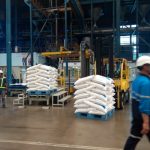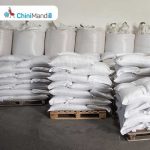The price of cassava is experiencing a rise due to increased competition from industries like ethanol production. This surge in industrial demand is creating a ripple effect, pushing up prices for everyday food items derived from cassava.
A staple food for millions, cassava is most commonly consumed in Nigeria as garri, a popular flour. The price of garri flakes has witnessed a staggering increase of over 50% in many parts of the country.
The price hikes extend beyond garri. Other cassava derivatives like flour, fufu (a dough-like staple), and starch are also becoming scarce and expensive due to the overall shortage of cassava. Experts attribute this scarcity to a significant rise in demand from both domestic consumers and industries like food processing and, most notably, ethanol production.
“The cassava industry is experiencing a boom in demand from both domestic and industrial consumers,” says Professor Kola Adebayo, Deputy Vice-Chancellor (Development) at the Federal University of Agriculture in Abeokuta. “This includes not just producers of native starch, but also cassava starch slurry used by food and beverage processors, paper manufacturers, and ethanol distillers.”
While the increased demand provides a financial incentive for cassava farmers, who are expanding cultivation areas to meet the rising prices, it presents a challenge for everyday Nigerians. The soaring prices threaten to make this essential food source unaffordable for many households.
This situation highlights the complex interplay between industrial needs and food security. As Nigeria’s industries flourish, policymakers will need to find solutions to ensure that this growth doesn’t come at the expense of the nation’s food affordability.

















